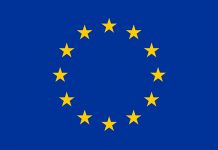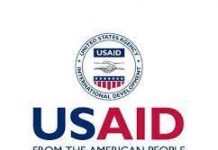The European Union Disaster Relief Emergency Fund (DREF) is expected to benefit 10,000 people, while 25,000 more will be benefiting indirectly.
In preparation for the high flooding in Nigeria, the European Union is providing €70,000 to support emergency preparedness to reduce the impact of floods in the country.
In a statement by the European Union and made available to Business Review Afrika said,” The EU funding supports the Nigerian Red Cross Society to increase capacity and preparedness to reduce the impact of likely floods in the states of Ondo, Kogi, Kebbi, Anambra, and Cross River. This will be done through increased community awareness, prepositioning of stocks, mapping of evacuation centres and hygiene promotion”
The statement continued, “It is expected that this support directly benefits 10,000 people and, indirectly, around 25,000 more. The funding is part of the EU’s overall contribution to the Disaster Relief Emergency Fund (DREF) of the International Federation of Red Cross and Red Crescent Societies (IFRC)”.
In the past decade, especially during the last three years, there has been an observed pattern of flooding in Nigeria, with floods becoming the second most recurrent hazard affecting the country, after the epidemics.
The high flooding period generally recorded from August to October is usually characterized by the collapse of major dams, overflow of riverbanks and heavy occupation of residential areas or the environment by large masses of water due to heavy flow of run-off rainwater, uprooting and washing away of residential buildings, and blowing away roofs of buildings. The rainy season also brings with it landslides in which hills and high lands collapse, burying people’s buildings and farmlands. The menace of erosion also comes in to contribute to further deterioration of the condition of the people and environment”.
“These trends are showing the necessity to anticipate the forecasted hazard and contribute much earlier to the preparedness in the areas at risk. As such, the Nigeria Red Cross Society will take preventive measures to prepare for the anticipated impact that these events could have on the humanitarian situation before the flood season hits the country” the statement stated
It is important to state that the European Union and its Member States are the world’s leading donor of humanitarian aid.
The statement states, “relief assistance is an expression of European solidarity with people in need all around the world. It aims to save lives, prevent and alleviate human suffering, and safeguard the integrity and human dignity of populations affected by natural disasters and man-made crises.
Through the European Commission’s Civil Protection and Humanitarian Aid Operations department, the European Union helps millions of victims of conflict and disasters every year. With headquarters in Brussels and a global network of field offices, the European Union provides assistance to the most vulnerable people on the basis of humanitarian needs.
The European Union is signatory to a €3 million humanitarian delegation agreement with the International Federation of Red Cross and Red Crescent Societies (IFRC) to support the Federation’s Disaster Relief Emergency Fund (DREF). Funds from the DREF are mainly allocated to “small-scale” disasters – those that do not give rise to a formal international appeal”.
“The Disaster Relief Emergency Fund was established in 1985 and is supported by contributions from donors. Each time a National Red Cross or Red Crescent Society needs immediate financial support to respond to a disaster, it can request funds from the DREF. For small-scale disasters, the IFRC allocates grants from the Fund, which can then be replenished by the donors. The delegation agreement between the IFRC and ECHO enables the latter to replenish the DREF for agreed operations (that fit in with its humanitarian mandate) up to a total of €3 million.” it added

























